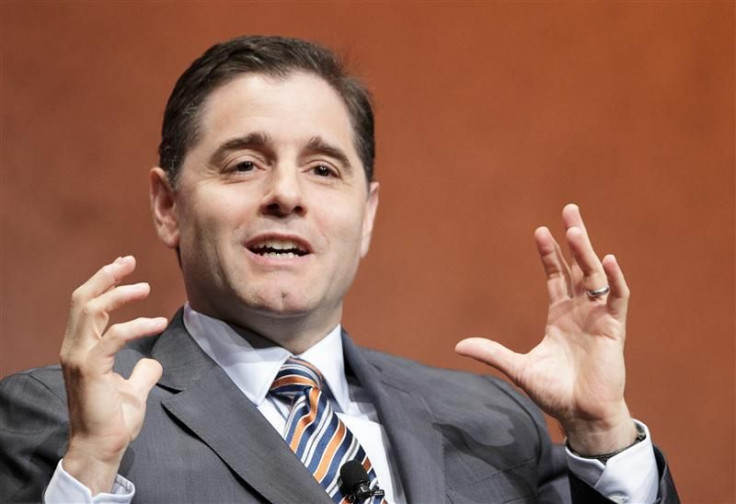FCC Sees Support for Incentive Auctions of Wireless Spectrum

(Reuters) -- Julius Genachowski, the top U.S. telecommunications regulator, said Wednesday that he has received bipartisan support from a group of U.S. senators for so-called incentive auctions of wireless spectrum without legislative restrictions.
Genachowski, chairman of the U.S. Federal Communications Commission, is looking for approval to give broadcasters a financial incentive to return unused spectrum licenses to the FCC so it can then auction off the spectrum to companies offering mobile data services.
There's broad bipartisan agreement we need incentive auctions, Genachowski said in a keynote speech at the Consumer Electronics Show in Las Vegas.
He cited a letter of support that a bipartisan group of senators had sent in the last few days advocating for votes in favor of the auction.
I'm hopeful the message in that letter will be heard more widely, he told Reuters in an interview after the speech.
Genachowski told the audience that as we get down to the wire on incentive auctions the sticking points are proposals restricting how the auctions should be run.
One proposed restriction is around the FCC's ability to allow a portion of the spectrum to be used for services similar to Wi-Fi, a hugely popular short-range radio technology that does not require a spectrum license.
Another proposal is to prevent the FCC from deciding whether it needs to put restrictions on who can bid in the auction in order to protect competition in the wireless industry.
Approving an auction without giving the FCC the flexibility to run it as it sees fit would not make sense. He noted that the FCC has successfully managed about 80 wireless spectrum auctions in the last 20 years that raised about $50 billion.
He also noted that the FCC's method for spectrum auctions had been so successful that it had been adopted in other countries.
It would not be wise to prejudge or micro-manage FCC auctions, he said.
For example, Genachowski noted that the FCC's allowing unlicensed spectrum use generates about $30 billion worth of economic value every year.
Genachowski warned that the United States was in danger of falling behind in the global wireless industry if the FCC is not able to provide wireless providers with the chance to buy more airwaves as soon as possible.
I'm hoping Congress will make a decision on incentive auctions by March first, Genachowski said referring to the deadline by which lawmakers need to vote on payroll tax legislation in which the incentive auction proposal would be included.
The regulator also appealed to directly the technology audience by stressing the importance of Internet access to consumer electronics devices.
If you shut off the Internet virtually nothing on the CES floor would work, Genachowski said.
(Reporting By Sinead Carew; Editing by Bob Burgdorfer)
© Copyright Thomson Reuters 2024. All rights reserved.











